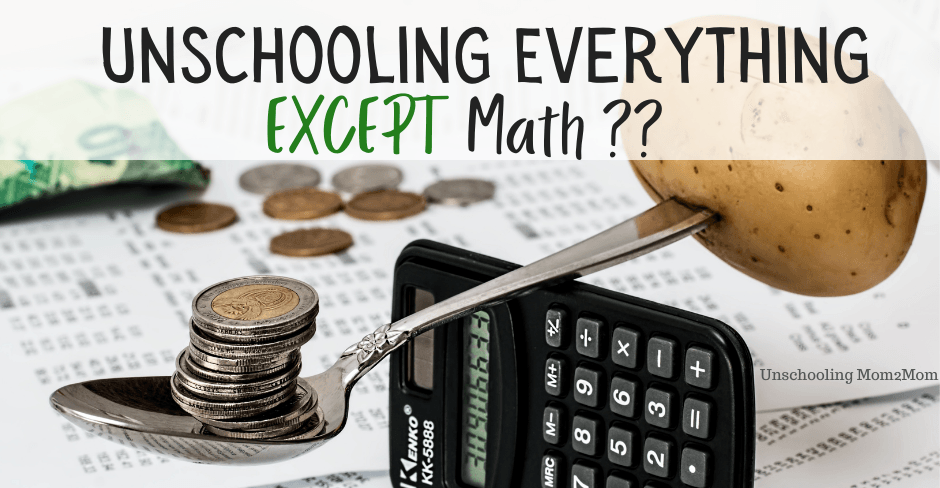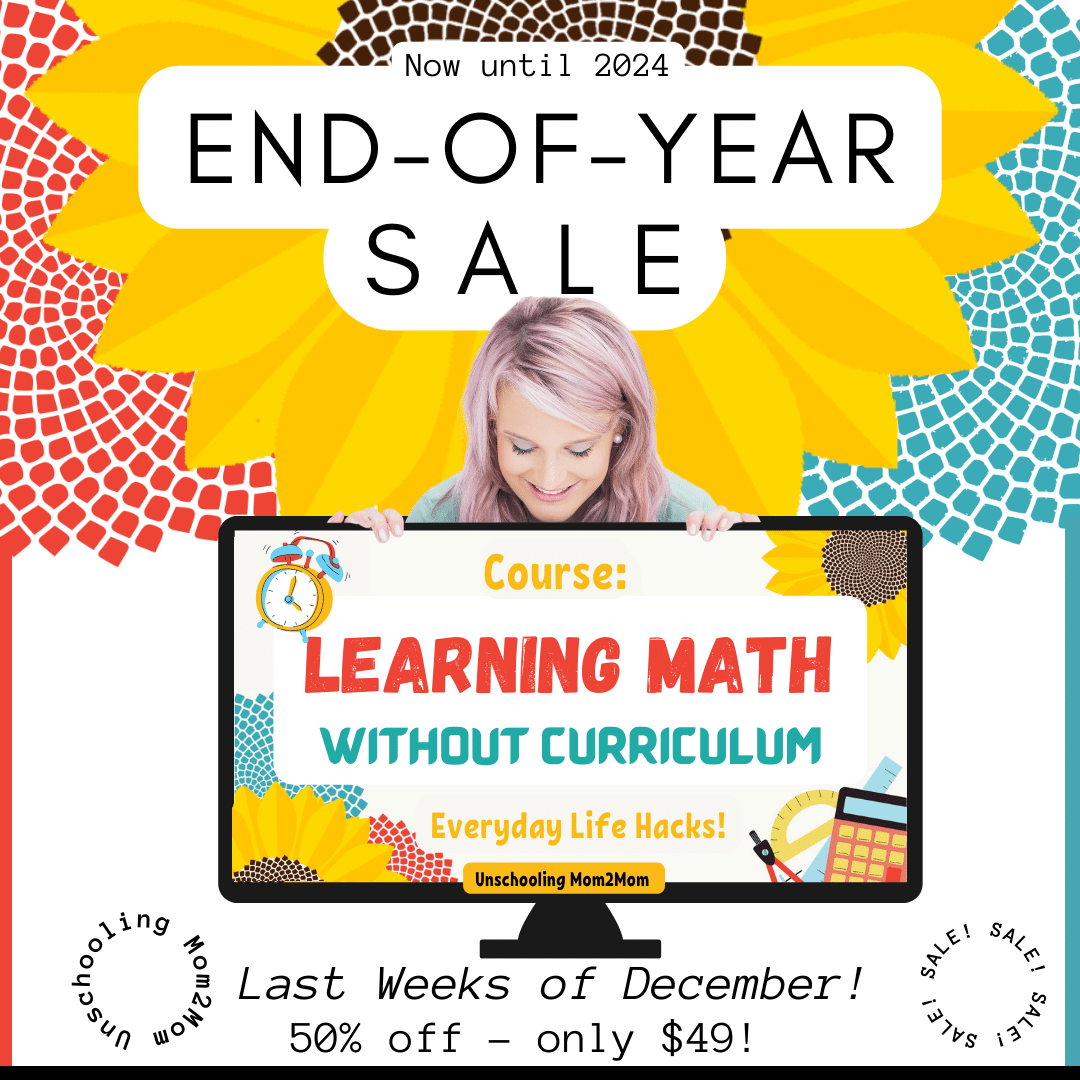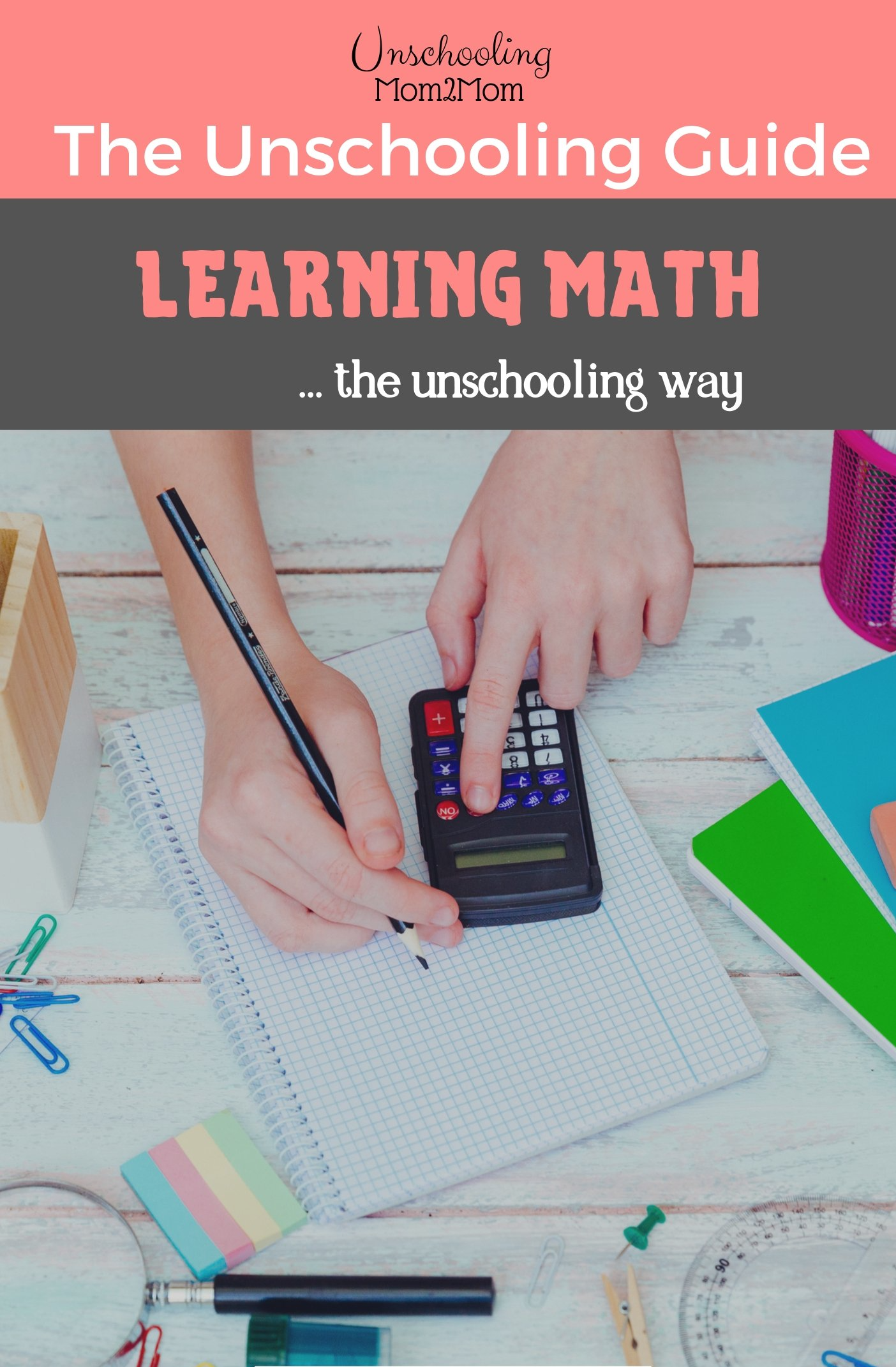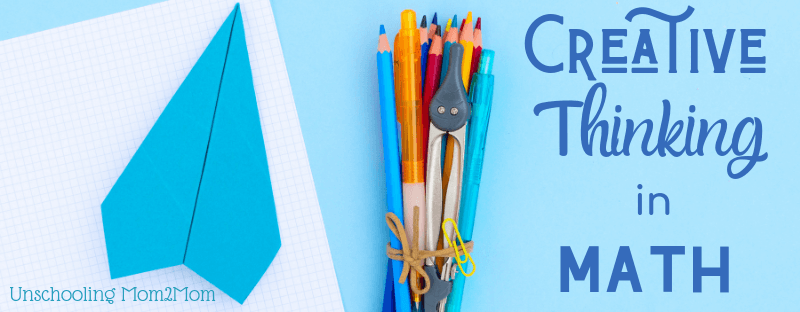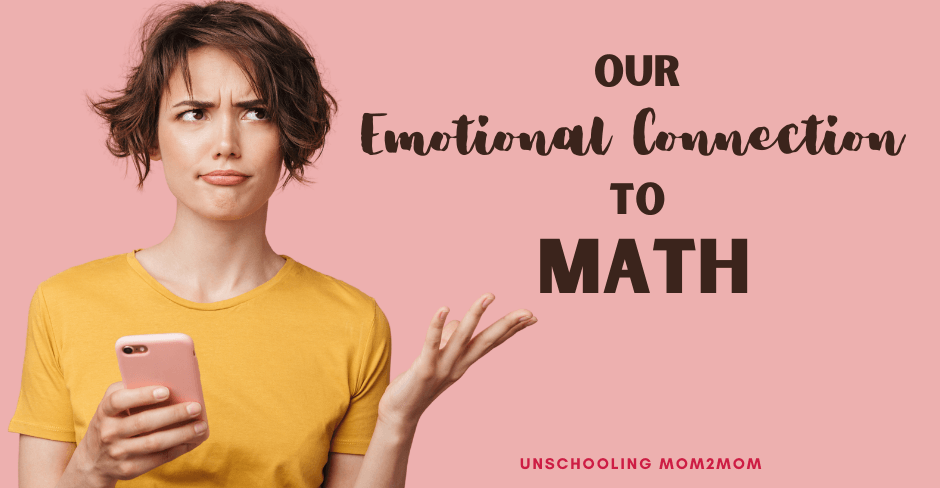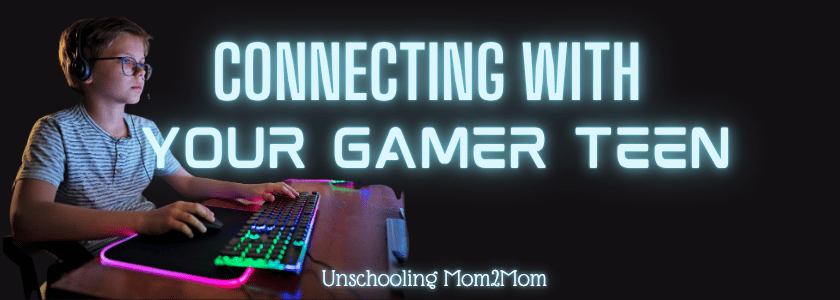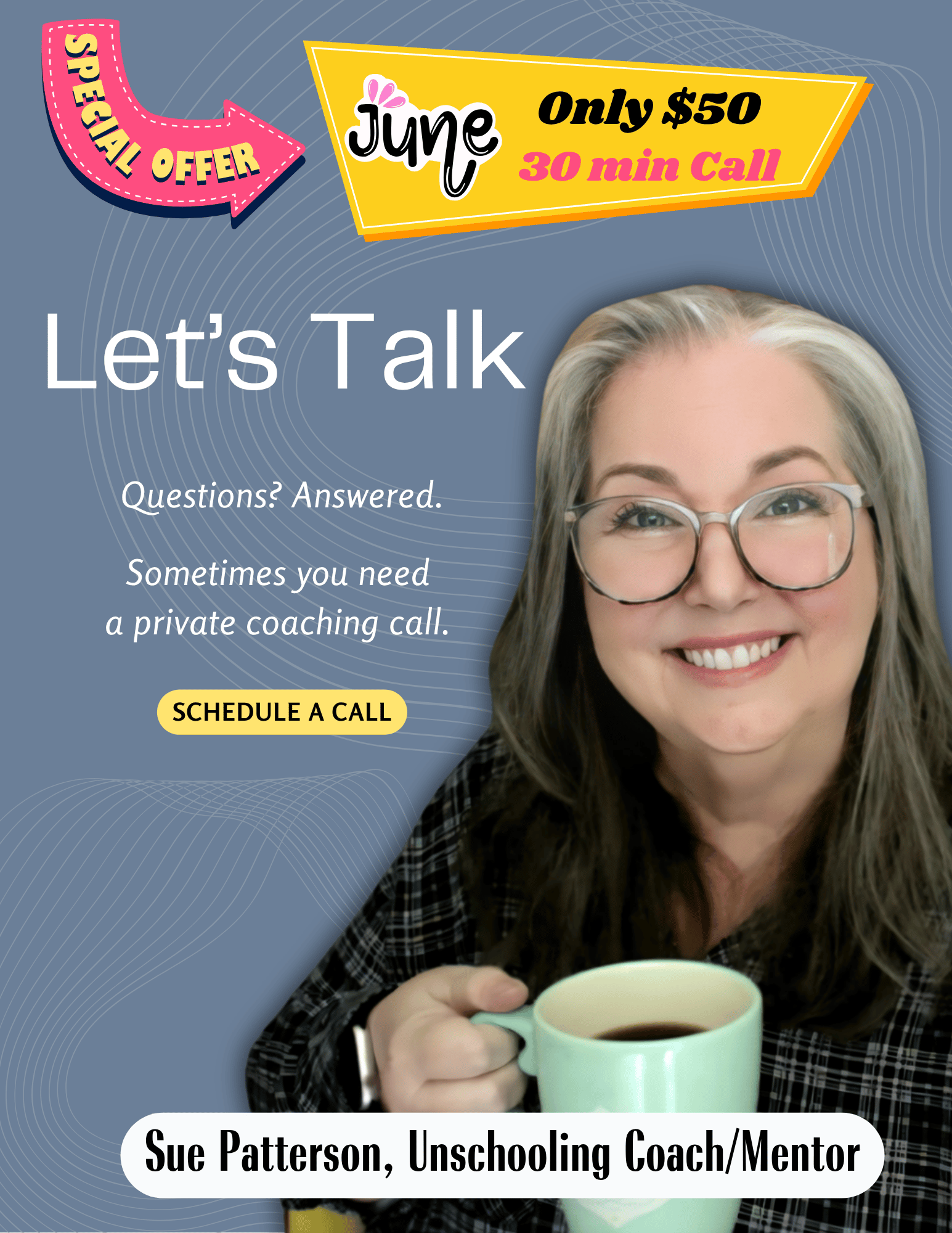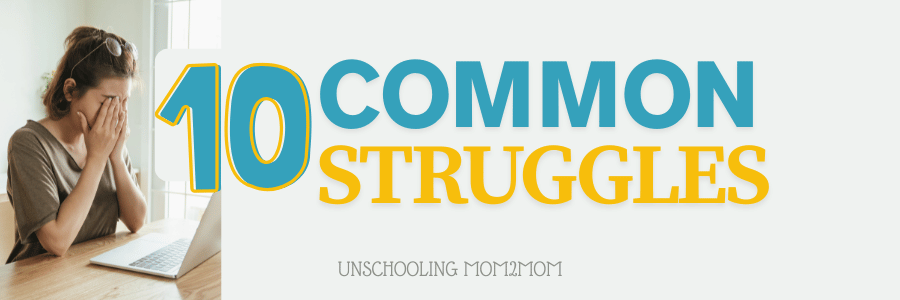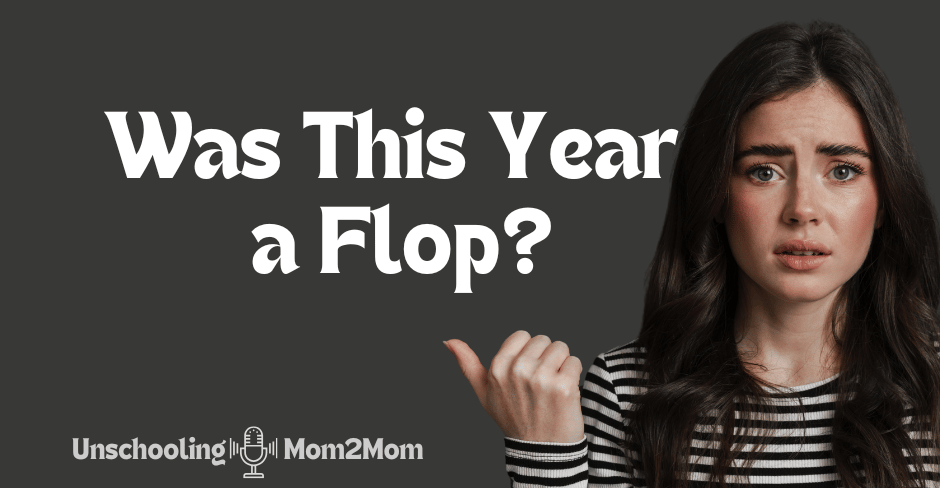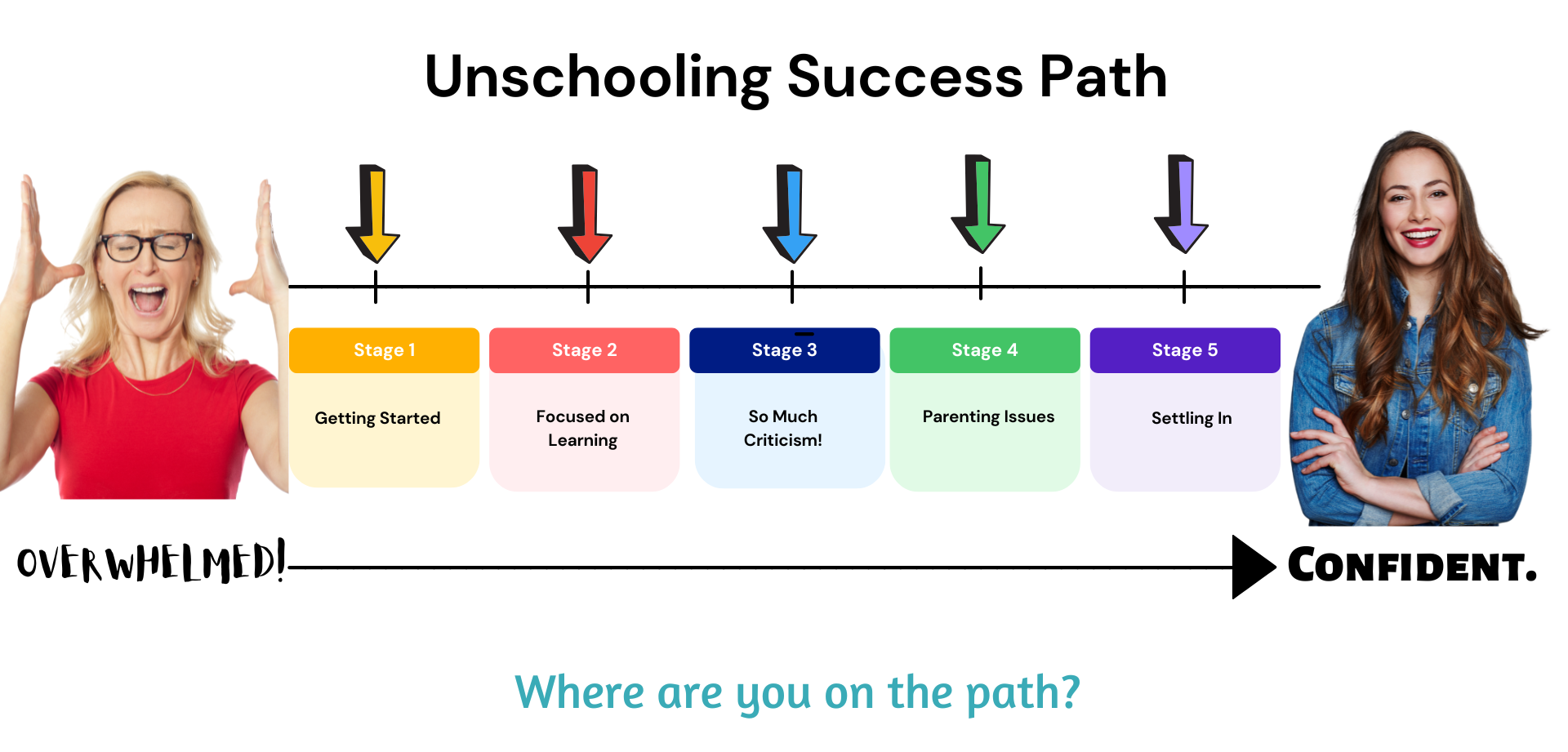Why Do We Resist Unschooling Math?
How Unschoolers Learn About Math
- Without Lesson Plans, Curriculum, or Timelines
How many times have I heard someone say,
"I like unschooling - but we’re going to use a math curriculum...because, you know, it’s MATH!"
Unschooling and math. We really seem to have some national phobia about it! And the only logical conclusion is that it comes from the way schools teach math. So let’s not duplicate THAT aspect from our educational experience!
Unschoolers learn math the same way they learn everything else in life – they have a need to know it so they learn it. Pre-planning because maybe they might need some aspect later down the road is, more likely than not, a waste of time. And trying to force topics on children when they have no interest, simply is ineffective and sometimes even counterproductive.
Let’s just admit that your high school algebra classes have been long since forgotten. And all those other math processes you were told were necessary “just in case you need them?” Well, you didn’t need them after all, right? Or if one little component (for me it was ratio and proportions) turned out to BE useful, it was solidified when you or I needed it! We could have bypassed the years of irrelevant practice problems!
Math “sinks in” when it’s in context. That’s why we don’t remember much from our old math classes. Arbitrary problems with no real connection to our lives aren’t going to cut it. The brain does not store what it considers unimportant pieces of information… unless it’s actually used.
So when unschooled kids (or any kids really) are using math while playing video games, it’s useful to them and their brains DO remember the concepts more. It’s really astounding how much math is required while playing video games. Watch your kids play. You’ll see them figuring out how to find the solution. It’s a practical application of all the “word problems” many of us hated. They’re actually learning how to think mathematically – instead of just memorizing something they have no clue when to apply. While it’s harder to measure their progress, it’s such a deeper understanding!
Why would you want to pull them off the computer/gaming console so they could crank
out a couple of math worksheets?
Math Help is On The Way!!
This 30-page guide will ease your mind on the topic of unschooling math and give you the reassurance you're seeking.
Math is all around us, every single day. It’s just waiting for us to notice!
I’d like to help you see that math is simply a beautiful language full of tools, and solutions to problems that are woven throughout our lives. Listen to unschooling voices who’ve written to help you understand that math is nothing to fear.
This Unschooling Guide includes:
- Seeing Math Everywhere
- A Scavenger Hunt for Math in Your Home
- Playing with Math
- Strewing and Storytime
- Math out in the Community
- Your Personal History with Math
- Math Anxiety and How to Get Over It
- Math Anxiety Assessment
- Ten Tips to Overcome Math Anxiety
- More Reading, Videos, and Podcasts about Reframing Math
- Math Games & Fun Ideas
- More Fun Ideas with Math
If you’re one of those people still hanging onto math workbooks/curriculum – but otherwise really liking the unschooling concept, I invite you to do a few things:
1.) Relax.
Take a few months off. Let Life happen.


2.) Watch your child and see where math pops up.
Think of yourself as an observer – a data collector. Are they sorting? Working with fractions? Estimating? Before you glaze over or shrug it off, how often do you do these kinds of things without even realizing it’s “Math Applications:”
You’re in the grocery store and you have to decide which checkout line to get into. You quickly “eyeball” the carts in a few of the shorter lines, and asses who has more, who has less. You check out the rate of speed for the comparative checkers. You glance at your phone to see what time it is and estimate how much time you have before you have to start dinner. Then you think about whether you have enough thawed chicken to be divided among all the people that will be coming to eat. And if there’s enough time to do all the things you need to do. And how quickly you can get home. And whether your checkout lane’s rate of speed is what you anticipated – is it moving as quickly as the one to your right?
All that math in less than a couple of minutes. Maybe even seconds. And you probably didn’t even realize it! Opportunities like this are really everywhere.
3.) Do mathy things with them
– without even calling it “math.” Or, depending on how your kids react to the idea of math, maybe do the opposite of that! Go ahead and say,
“That was actually using math – and we didn’t have any problem at all.” or
“Maybe we’re actually pretty good at Real Math… just not School Math.”


4.) Play more games with the kids.
Cards, dice – so many opportunities! Less than, more than, equalities and inequalities. Check out the games that they’re playing on the computer. There’s often loads of math involved. Or what about fun apps like DragonBox Algebra ?
5.) Read math stories
(like Ten in the Bed or 100 Angry Ants) Think about all the ways you’ve avoided math – don’t pass that on.
LOOK for books that mention mathy topics.


6.) Notice the shapes and patterns in architecture.
Or in your living room. Or in nature. Google Zentangles or other ways to draw repetitive lines and curves.
Here’s a link to the
Pinterest Doodle Board.

7.) Notice patterns in music.
You might want to check out some of the Vi Hart videos and watch a Mathemusician and Virtual Reality Philosopher share/show their thoughts.
8.) More education for YOU
Read some more about Unschooling Math.
9.) Creative solutions.
Get creative on how YOU look at math. See if the kids would be interested in challenging themselves to Find the Math in everyday circumstances! Like that checkout lane example… what else can they come up with?
How about at the post office? Or planning a trip? Or buying some new clothes? Math.Math.Math.
Check out the unschooling ideas about math at the Unschooling Mom2Mom Pinterest board.
10.) Loosen the grip of your own Math phobia.
As you try these things for a few months, you may see that your own math anxiety begins to dissipate. Tell yourself, “this is just an experiment.” That may help you set aside your fears more easily.
Could You Use Some Support?
Sometimes it really helps to work through these math issues with other unschooling parents who can relate!
We talk about solutions every week in the private membership group for unschoolers.
You may even be surprised when you don’t need those workbooks!


